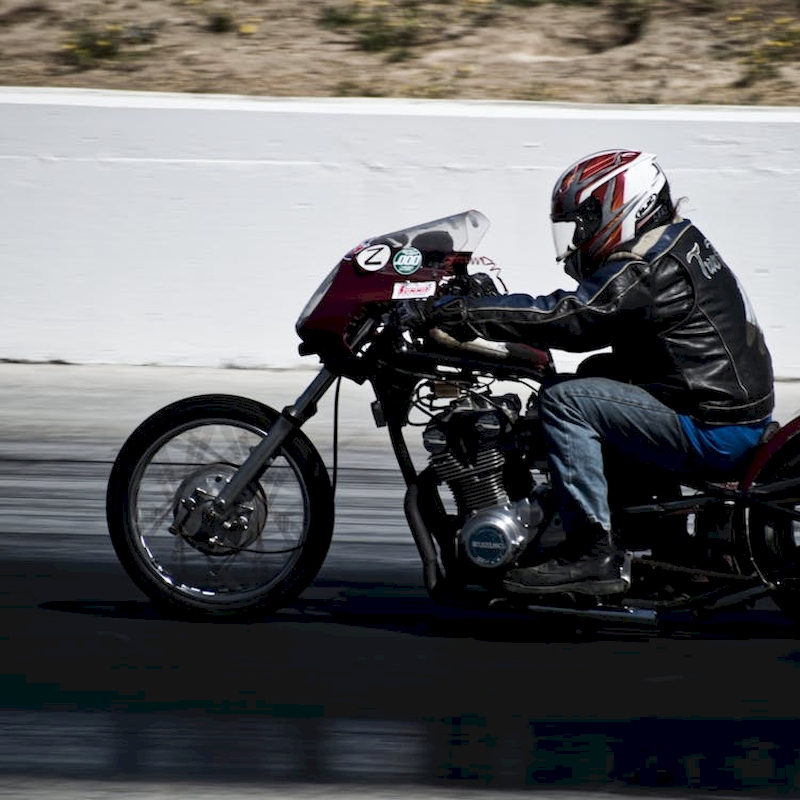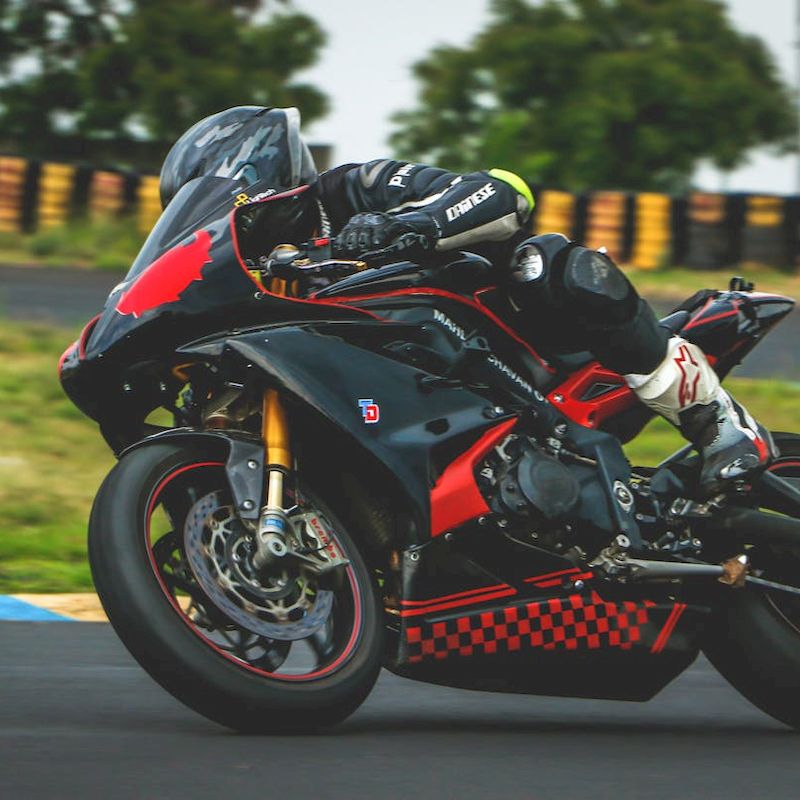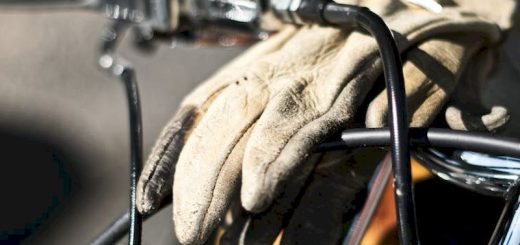Understanding How Long Does It Take to Get a Motorcycle License
Introduction
Getting a motorcycle license is an exciting quest for many riders, often filled with anticipation and a longing for freedom on the open road. As you contemplate making this bold leap, it’s essential to understand the various stages involved in obtaining your license. How long does it take to get a motorcycle license? The answer is not straightforward and can vary depending on several factors such as your location, prior experience, and the specific requirements of your region. For some, the journey can be relatively swift, while for others, it may involve more extended preparation and a deeper commitment to learning. This article aims to explore the intricate process of getting a motorcycle license and provide insight into the factors that can influence the timeline, ensuring you’re well-prepared for your journey ahead.

The Importance of Obtaining a Motorcycle License
Acquiring a motorcycle license is not merely a bureaucratic process; it represents a pivotal step toward experiencing the thrill of two-wheeled travel legally and safely. For many enthusiasts, riding a motorcycle offers a unique sense of freedom and adventure that is unlike any other form of transportation. However, the significance extends beyond mere enjoyment. A valid motorcycle license serves as a testament to your ability to operate a motorcycle responsibly. It entails understanding the rules of the road, knowing how to handle two wheels, and being aware of the inherent risks associated with riding.
Moreover, obtaining your motorcycle license is essential for legal compliance. Riding without one can lead to hefty fines, points on your driving record, and increased insurance premiums. Different regions have distinct regulations regarding motorcycle operation, and not adhering to these can result in serious consequences, including potential liability in the event of an accident. Therefore, understanding how long it takes to get a motorcycle license is crucial for anyone contemplating this journey, as it enables you to plan effectively and adhere to the requirements set forth by your jurisdiction.
Factors That Influence the Timeline
When contemplating how long does it take to get a motorcycle license, it’s important to recognize that numerous factors can influence the overall timeline. Here, we delve into these elements to provide clarity on the potential duration of the licensing process.
Geographic Location
Your location plays a significant role in determining how long it takes to secure your motorcycle license. Different states and countries have varying regulations and requirements. Some regions require a series of tests, including written, vision, and practical riding examinations, while others may offer streamlined processes for beginner riders. Additionally, waiting periods for appointments at licensing offices can vary, which further impacts the overall duration.
Age and Experience Level
The age at which you apply for your motorcycle license can also affect the timeline. In many areas, new riders under a certain age might be required to undergo additional training courses or fulfill a waiting period before obtaining a full license. Conversely, experienced riders moving from other vehicle licenses may have a more straightforward process, possibly bypassing certain requirements, leading to a quicker timeline.
Training and Preparation
Before even applying for a motorcycle license, prospective riders typically undergo training. The length of this training period can vary based on how quickly an individual learns and their commitment to practice. Comprehensive courses, while beneficial for skill development, may span several weeks and require dedicated time slots. Riders who take a structured course often find it easier to pass the required tests, adding another layer to the overall timeframe.
Testing Procedures
Understanding the testing procedures in your area is crucial when determining how long does it take to get a motorcycle license. The process usually involves a written test, which covers road signs and safety regulations, followed by a skills assessment to demonstrate your ability to operate a motorcycle. The time taken to prepare for these tests can fluctuate based on an individual’s prior knowledge and experience with motorcycles. Moreover, scheduling testing dates are also subject to the availability of testing facilities, which could extend your timeline.
The Steps to Obtaining a Motorcycle License
The process of obtaining a motorcycle license generally involves several key steps. Below, we outline these stages to help you comprehend what to expect and how long it may take at each juncture.
Enrolling in a Training Course
For many riders, the first step is enrolling in a motorcycle safety course. These courses provide essential education on riding techniques, safety measures, and road awareness. Depending on the course duration, which can range from a single weekend to several days, this step can either expedite your progress or set the stage for a longer timeline if it requires commitment.
Getting a Learner’s Permit
In many states, obtaining a learner’s permit is the next logical step. This permit allows you to practice riding under certain conditions, preparing you for the eventual skills test. The application process for a learner’s permit generally requires passing a written test, and depending on your local regulations, the time it takes to learn about regulations and road rules can also vary.
Practicing for the Skills Test
With a learner’s permit in hand, you can begin practicing for the skills test. How long you spend practicing can significantly impact your timeline. While some riders may feel confident after just a few weekends of practice, others may require additional time to feel ready for the skills assessment. Continuous practice can lead to greater competence and success on the test day.
Scheduling and Taking the Tests
Once you feel ready, the next step is scheduling your tests. Depending on your location, there may be waiting times for testing appointments, which can prolong the timeline. Taking the written and skills tests will generally take a few hours, and successfully passing these exams is crucial for advancing to the next phase: obtaining your motorcycle license.
Receiving Your License
After passing all necessary tests, you will need to complete any outstanding paperwork and pay the required fees. Once approved, your official motorcycle license may be issued immediately or might be sent through the mail, which could take additional days. Being aware of these final steps can ensure you have a comprehensive understanding of what to expect when the time comes.

Tips to Expedite the Process
While getting a motorcycle license can seem like an involved process, there are several strategies you can employ to potentially expedite the timeline. By being proactive and organized, you can navigate the road to licensing more efficiently. Here are some practical tips:
Research Local Requirements
Begin by thoroughly researching the specific requirements in your state or country for obtaining a motorcycle license. Websites of local Department of Motor Vehicles (DMVs) or equivalent agencies usually provide detailed information on the steps, fees, and documents required. Being well-informed can help you gather all necessary paperwork and avoid delays.
Choose an Accredited Training Program
Select a reputable motorcycle safety program. Many areas offer accredited programs for learning how to ride safely and effectively. Completing a recognized course can sometimes lessen the requirements for testing or provide credits that speed up the process.
Practice Consistently
Allocate dedicated time for practice to build your riding skills. Whether you have a motorcycle at home or need to rent one, consistent practice will prepare you for the skills test. The more comfortable you are on the bike, the more likely you are to pass on your first attempt, preventing delays caused by retesting.

Be Flexible with Scheduling
When it comes to scheduling your tests, be flexible. If you can take time off during less busy periods or choose off-peak times, you’ll likely find it easier to get an appointment. Avoiding times when demand is high can help cut down on waiting times.
Keep Documentation Ready
Make sure to have all necessary identification, documentation, and fees ready before visiting the licensing office. Being prepared can streamline the process and prevent any last-minute issues that could delay your progress.
Conclusion
Navigating the process of obtaining a motorcycle license can feel daunting, particularly when considering how long does it take to get a motorcycle license. However, understanding the various factors—such as geographic location, age, training, and testing procedures—can help demystify the timeline. Investing the time and effort into proper training and preparation not only enhances your knowledge and skills but also promotes safer riding practices. Ultimately, the journey culminates in the joy of hitting the open road on your motorcycle, a fitting reward for your dedication and hard work. Embrace the experience, and remember that every successful ride starts with a commitment to safety and a willingness to learn.
